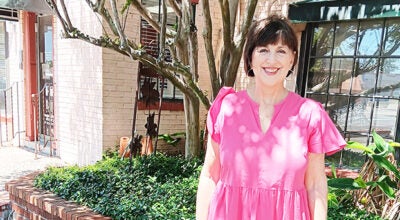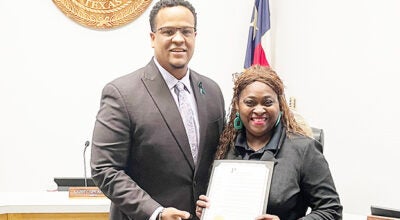Occupational licensing rules spark backlash
Published 8:39 am Thursday, December 1, 2016
By Kenric Ward
Watchdog.org
Marching into the Texas Capitol to demand that unlicensed interior decorators be prohibited from plying their trade, Kelley Barnett was stopped cold by one question: What was her proof that the “public was in danger”?
“I couldn’t answer,” recalled Barnett, then president of the Texas chapter of the American Society of Interior Designers.
Heading back to the drawing board, her research revealed four ugly truths about occupational licensure that exploded the mythology of Texas’ state-sanctioned registries:
- There were no actual cases of harm done by unlicensed designers.
- The Texas Board of Architectural Examiners had, for 20 years, withheld critical information from the public, refusing to disclose that the majority of registered interior designers had not passed a required exam.
- 69 percent of the state’s registered designers — 3,500 of them — were grandfathered in without earning a required four-year post-secondary design degree.
- Of dubious value, the four-year degree requirement trimmed the ranks of new interior designers and forced St. Mary’s University in San Antonio to shut down its two-year degree program.
Barnett flipped her pro-regulation script and called for an end to mandatory interior-design licensure in Texas. The state’s Sunset Advisory Commission agreed that the arbitrary and capricious regulatory regime be scrapped.
In January, state legislators will wade deeper into the swamp of occupational licensing rules.
“There’s new steam for deregulation in 2017,” said state Rep. Craig Goldman, R-Fort Worth. “We’ll go through [licensing] one by one. If it doesn’t help protect health and safety, why is it law?”
For all its conservative credentials, Texas maintains a heavy hand in licensing garden-variety work.
Thirty-four of 102 low- and medium-income occupations — ranging from door-repair contractors to skin-care specialists to hair shampooers — are licensed under state law, according to one study. Ironically, the deep-blue states of New York and Vermont have fewer such jobs under government control.
Overall, Texas ranks a middling 32nd among 51 states and the District of Columbia for occupational licensing regulations, according to the Institute for Justice, a nonprofit public-interest law firm.
“There are so many licensing provisions, no one has been able to count them all,” said Brent Connett, chief of staff for state Sen. Don Huffines, a vocal critic of occupational licensing in Texas.
While some level of licensure can be justified, the education and experience requirements in Texas appear haphazard, even nonsensical.
Emergency medical technicians, for example, are required to complete just 33 days of instruction to qualify. Manicurists, by contrast, must put in 140 days. Barbers and cosmetologists are required to do 350.
The Institute for Justice is targeting at least seven licensing areas for repeal in the Lone Star State:
- Interior designers.
- Salvage vehicle dealers.
- Dog trainers.
- Towing/booting operators.
Matt Miller, an Institute for Justice attorney in Austin, said Texas’ licensing provisions drive up consumer costs and erect barriers to entry by imposing inflated education expenses.
Cosmetology schools, for example, are required to span at least 2,000 square feet and have a minimum of 10 sinks.
“Is it any wonder that a cosmetology license costs $17,000?” he noted.
“Disconnected from public safety, these rules protect large schools that profit tremendously. Why not license on a chair-by-chair basis?” Miller suggested.
Though no state figures were available, IJ senior attorney Clark Neily said occupational licensing rules add $203 billion in annual costs to U.S. consumers. The Texas state budget is $209 billion.
Huffines, a Republican from Dallas, plans to introduce legislation that would convert all but essential occupational licensing to voluntary participation.
Goldman and Huffines are encouraged that common sense and competition will prevail at the Legislature, eventually.
In 2015, ringside timekeepers were relieved of state licensure rules and African hair braiders were deregulated after IJ won a federal court ruling that three of Texas’ education requirements were unconstitutional.
Can hair shampooers be far behind?
Kenric Ward writes for the Texas Bureau of Watchdog.org. Reach him at kward@watchdog.org and follow him on Twitter @Kenricward





